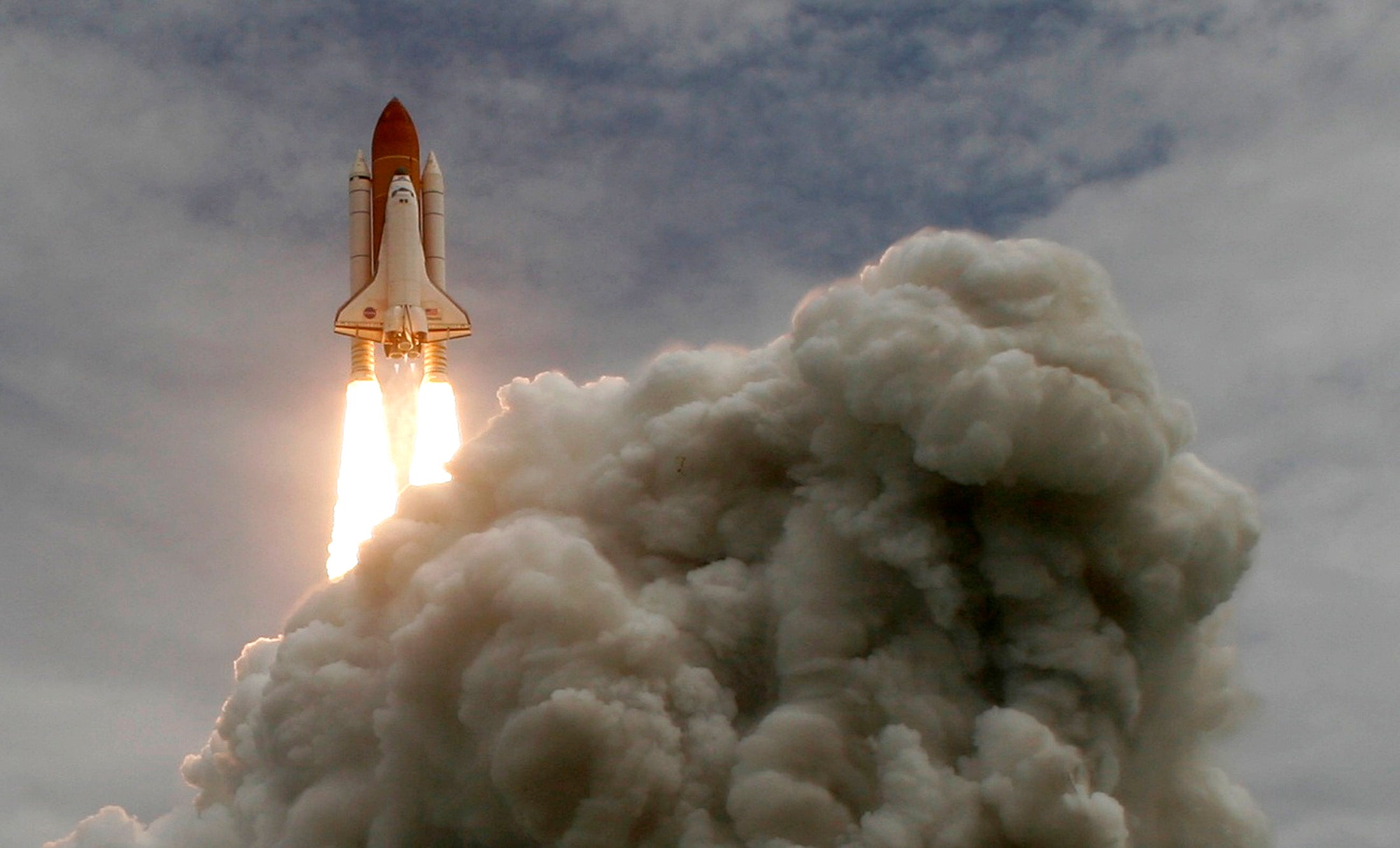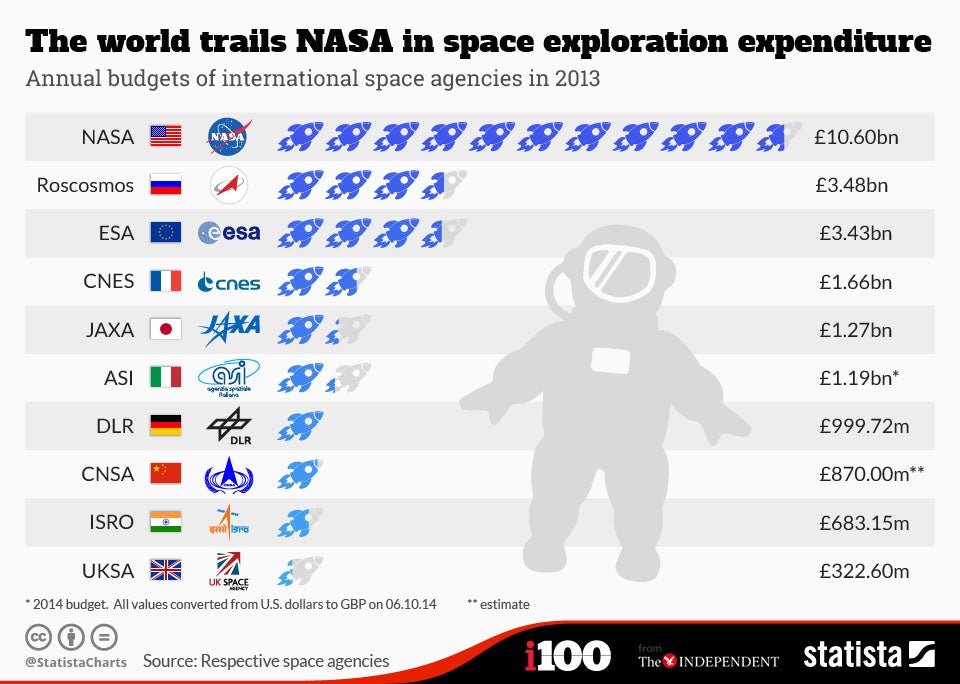The Independent's journalism is supported by our readers. When you purchase through links on our site, we may earn commission.
World Space Week: How long until we can all go on holiday outside of Earth?
As it currently stands private space travel is still incredibly expensive and remains the pursuit of the super-rich, but that won't always be the case

Last week SpaceX founder and entrepreneur Elon Musk decreed the need to send one million people to live on Mars. Alongside this Skyscanner wrote about their predictions for potential holidays in space by 2024. These bold statements highlight the desire of some to colonise other planets in our solar system. While permanent Mars colonies are still a long way off, holidays in space may be a little more feasible.
Ten years ago a fellow entrepreneur, Richard Branson, founded Virgin Galactic. The purpose of this company was to give people the opportunity to experience, albeit briefly, weightlessness and a quick trip to space.
Virgin Galactic’s model revolves around a three-day experience. This begins with training with your fellow crew before your launch. Your launch is a roughly three-hour experience that culminates with six minutes of weightlessness as SpaceShipTwo performs its suborbital flight. The flight path is such that the spacecraft achieves a height greater than 100km making the passengers fully fledged astronauts, an accolade held by less than 500 people. For the privilege of being involved in this incredible endeavour you will be asked to part with $250,000 each, certainly more than the average holiday.
Virgin Galactic isn’t yet flying these experiences, though Branson has said they are 'on the verge'. And they aren't the only organisation offering short breaks into space. Space tourism actually began in 2001 when American engineer Dennis Tito paid $20 million to spend a week aboard the International Space Station. This trip was organised by Space Adventures Ltd. who have facilitated trips for six other clients.
The future of space tourism is also rapidly changing. Bigelow Aerospace was set up by an American motel mogul. The company is investigating inflatable space hotels suitable for weekend breaks in orbit. Golden Spike is a company looking into selling trips to walk on the Moon. As we can see all sorts of expeditions are being planned but they all have one thing in common, they are all very expensive.
As it currently stands private space travel is still incredibly expensive and remains the pursuit of the super-rich. Projects like Virgin Galactic are going some way to reduce prices but still feature eye-watering prices. This is simply due to the difficulty associated with getting into space.
The destination is actually much closer than many of us travel when going on holiday. Space is only 100km away, a point called the Karman Line. This imaginary line marks the division between traveler and astronaut. Space travel for humans is not only expensive due to the difficulty in reaching orbit, but costs are increased by the equipment required to survive once we are there.
Places like the International Space Station contain highly sophisticated, specialised equipment. This equipment provides breathable air, drinking water, waste disposal, a suitable thermal environment and much more. All this equipment not only has to function accurately and consistently but it has to deal with the difficult microgravity environment of Earth orbit. It is complications such as this that have raised the cost of such a facility to over $100 billion over the last 20 years.

The above graphic, produced for The Independent by Statista, shows how much different space agencies spend on space exploration.
It isn’t however all doom and gloom. In the last 50 years space travel has gone from the stuff of dreams and fantasy to an almost daily occurrence. There has been a permanent crew aboard the ISS for well over 10 years; barely a month goes by without news of a new satellite or mission going into orbit around the Earth or another celestial object.
With each launch and each mission we further develop our knowledge and ability to enter and operate within the environment of space. As we continue to innovate and refine our technology we get a step closer to making space travel an everyday occurrence. As mentioned earlier more and more companies are trying to place themselves in a position to help the public fulfil their dreams of spaceflight. As this happens there will be a drive to make things cheaper. The private sector is already tussling with each other to provide the cheapest orbital system.
As more companies offer similar packages to Virgin there will be an impetus for them to lower prices, or offer a more comprehensive package. If we look at the history of air travel we can get perspective of what may be in front of us. The first commercial flight came in 1914. Mr Abram Pheil paid the equivalent of $5000 to fly just 21 miles over Tampa bay from St. Petersburg to Tampa. In 100 years this has transformed into more than eight million airplane passengers per day.
As we are all aware, space travel is a little trickier than flying through the air, but they could both share a similar story. There is a growing public interest in leaving the world behind, even if it is just for a quick break. Private companies are turning their attention to opportunities beyond our own atmosphere and we are getting to a stage where we could support these activities.
If there is sufficient drive, there is no doubt that we will leave our planet behind and begin to stretch ourselves further into the universe around us. It probably won’t be within the next 10 years, it is doubtful that it will be commonplace within the next 50. That being said, just as our ancestors ventured beyond their caves, and crossed the seas, space is the current boundary to our next great adventure.
Josh Barker works for the Space Communications Team, National Space Centre, Leicester
Selection of places to visit in space by Josh Barker and Zoe Baily, members of the National Space Centre’s Space Communication Team
Join our commenting forum
Join thought-provoking conversations, follow other Independent readers and see their replies
Comments
Bookmark popover
Removed from bookmarks